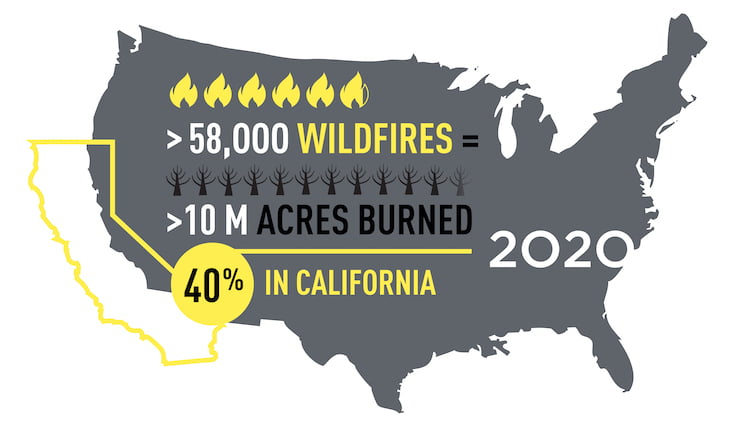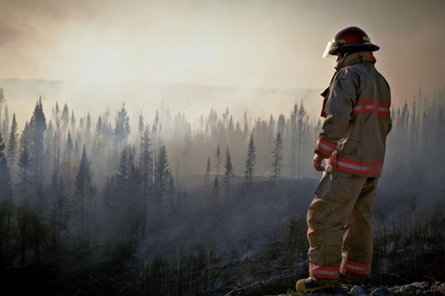In recent years, wildfires have devastated large parts of California, Colorado, Oregon, and Washington, including areas near Lincoln City in 2020. In 2018 alone, wildfires scorched 8.7 million acres of land. The increasing frequency and intensity of these fires raise important questions: why do they seem to be getting worse, and how can we prepare?

While hot, dry conditions are often cited as a major reason wildfires start, they don’t automatically cause fires. Something has to ignite the spark. In some regions, such as Alaska, most fires are caused by lightning, while in states like California, human activity is often the culprit.
 How Wildfires Start
How Wildfires Start
Understanding the causes of wildfires in your area can help you take steps to protect your property. The two main causes of wildfires are natural and human-made.
 Natural Causes
Natural Causes
Most wildfires caused by nature are ignited by lightning. In rare cases, volcanic eruptions, meteors, and coal seams can also start fires. Lightning strikes generate enough heat to ignite trees, leaves, and other organic materials, especially in dry conditions.
Lightning-caused fires are especially dangerous because they can start in remote areas and are often accompanied by strong winds, which spread the flames quickly.
Climate change is believed to increase the risk of wildfires. According to the United States Geological Survey (USGS), rising temperatures are linked to more frequent and severe wildfires. Warmer summers and drier conditions are making many regions, including Oregon, more vulnerable to wildfires.
 Human Causes
Human Causes
Human activity is responsible for nearly 85% of wildfires. These can be accidental or intentional. Unintentional causes include unattended campfires, discarded cigarettes, fireworks, sparks from equipment, and even gender reveal parties.
Intentional causes, such as arson, also lead to widespread damage. Arson accounts for over 500,000 wildfires annually, resulting in more than $3 billion in damages. Knowing how to safely extinguish fires can help prevent them from starting in the first place.
 Wildfire Trends
Wildfire Trends
Data from the National Interagency Fire Center shows that while the number of wildfires per year has slightly decreased over the past three decades, the total acreage burned has increased significantly. In 2020, more than 58,000 wildfires consumed over 10 million acres, with nearly 40% of those acres in California. This is largely due to California’s dry, windy, and hot conditions, which provide the perfect environment for wildfires to spread. Oregon, with its dense forests and dry summer conditions, faces similar risks.
 Protecting Your Property from Wildfires
Protecting Your Property from Wildfires
While wildfires are difficult to predict, there are steps you can take to protect your property in Lincoln City:
- Remove dead vegetation: Dead leaves, branches, and other organic material around your home can act as fuel for wildfires. Clearing them away reduces the chance that a fire will spread to your property.
- Store firewood away from your home: Keeping firewood or other combustibles near your home increases the risk of the fire spreading to your structure.
- Clean your gutters: Twigs and leaves in gutters provide fuel for fires, which can spread to your roof and walls.
- Use fire-resistant roofing materials: A roof with Class A fire-rated materials can withstand fire for 2 to 4 hours, giving you more time to protect your home.
 Recovering from Wildfire Damage
Recovering from Wildfire Damage
Wildfires can cause extensive damage to homes and businesses, including structural damage and destruction of personal belongings. Smoke, soot, and odor can also affect your home’s interior and require professional cleaning.
If your property in Lincoln City has been affected by wildfire, ServiceMaster Restore is here to help. We’ll assess the damage and guide you through the restoration process, working to recover what we can and keep you informed along the way. With over 850 locally owned and operated locations across the U.S. and more than 65 years of experience, we’re ready to help you get back to normal as quickly as possible.
For 24/7 assistance, call ServiceMaster Restoration Services at 541-687-0900, available every day of the year.





